Thaipusam
India
*Shocking photos are included.
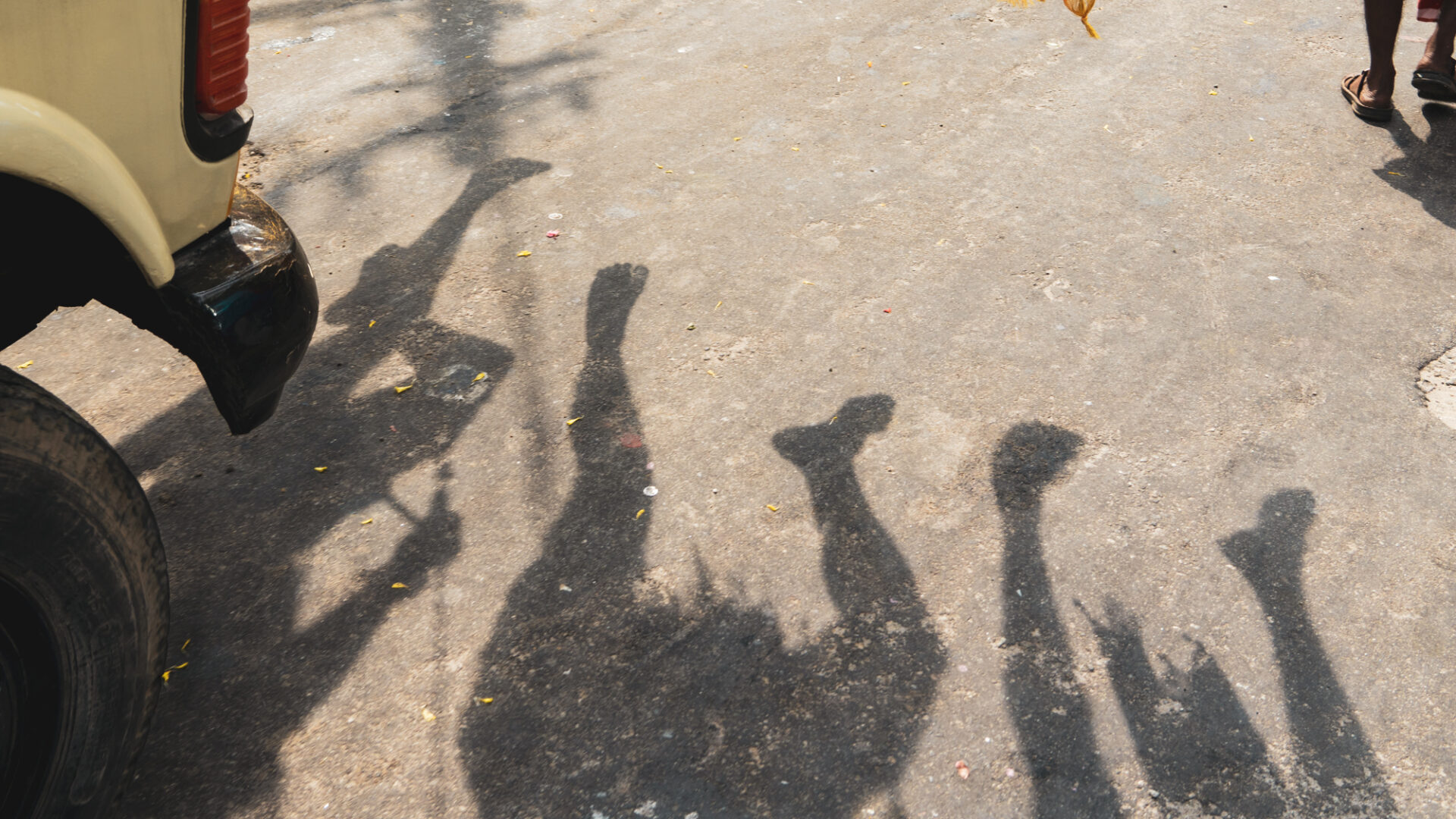
The festival involves elaborate processions to Murugan temples, where devotees carry Kavadi, symbolic of their devotion, often adorned with peacock feathers and sometimes piercing their skin as a form of penance.
Additionally, devotees offer pots of cow's milk, symbolizing purity, and engage in acts of mortification like Vel Kavadi, piercing their skin with Vel skewers to achieve spiritual purification.
Thaipusam, occurring in the Tamil month of Thai, holds profound importance, observed as a public holiday in some countries, and provides believers with a platform to express their deep faith and devotion through sacred rituals.
The preparation for Thaipusam involves rigorous spiritual discipline, including cleanliness, regular prayers, following a vegetarian diet, fasting, and observing celibacy, aimed at purifying the body and mind for full participation in the festival's rituals and spiritual growth.
Devotees undertake various forms of austerity, enduring physical discomfort as a means of spiritual devotion.
This includes practices such as abstaining from comfortable amenities, sleeping on the floor, and sometimes even self-flagellation, all aimed at deepening their connection with the divine and achieving spiritual purification.
Through these challenging practices, devotees seek to demonstrate their unwavering commitment and surrender to the will of the deity, ultimately striving for spiritual enlightenment and divine grace.
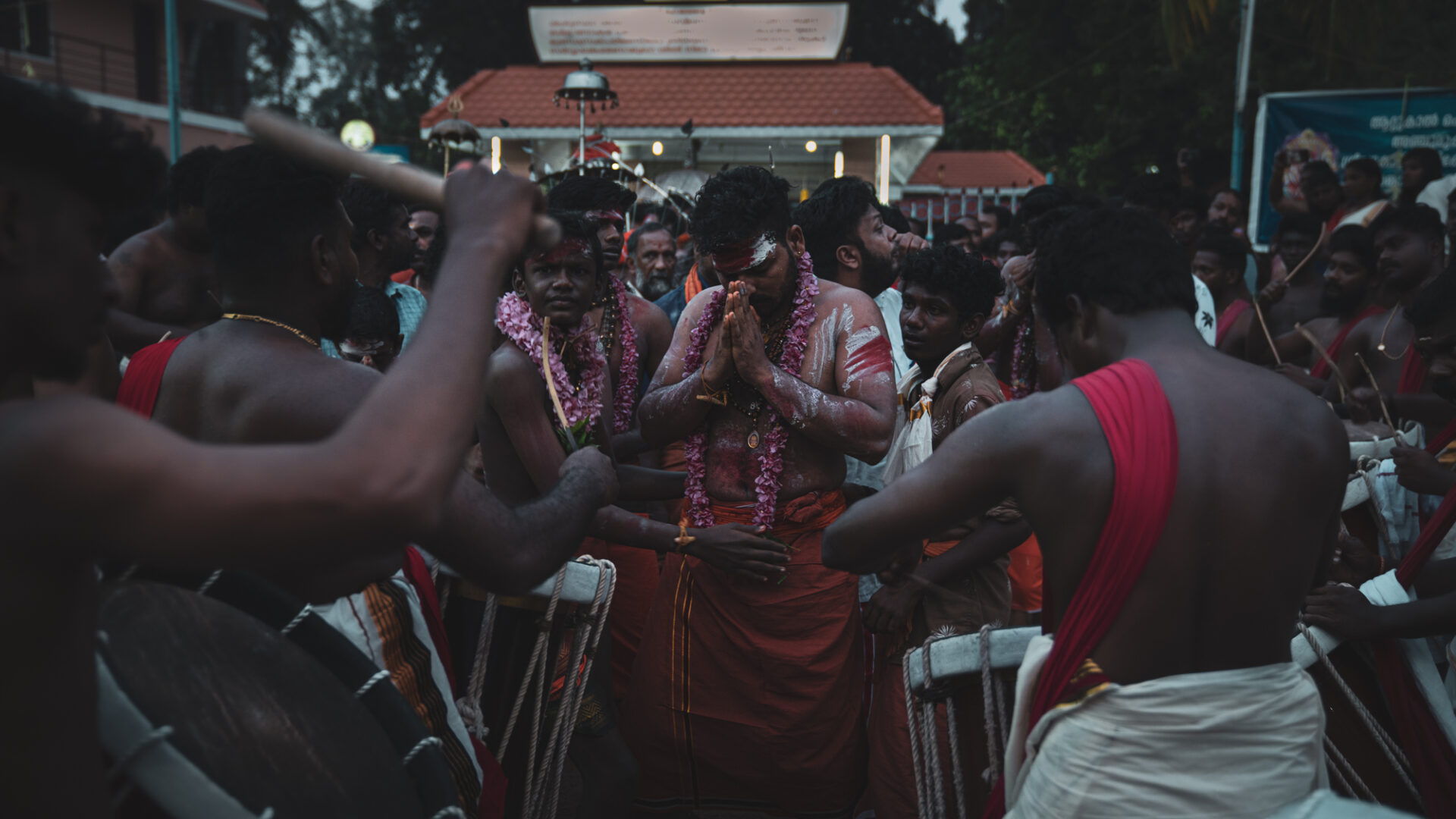
People began gathering at midnight, and before dawn, percussion music and prayers signaled the start of the festival.
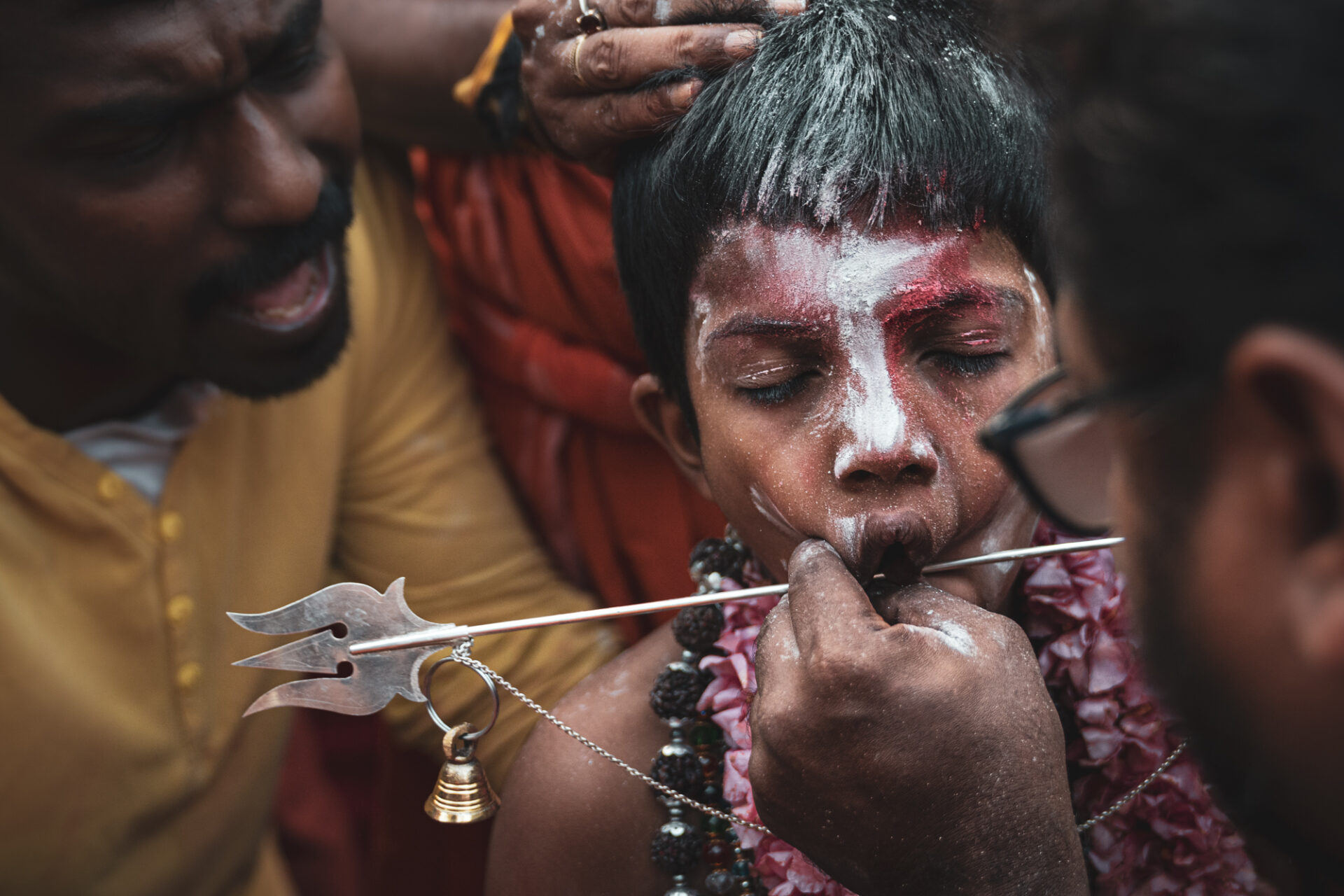
Piercing the cheek with a kavadi.
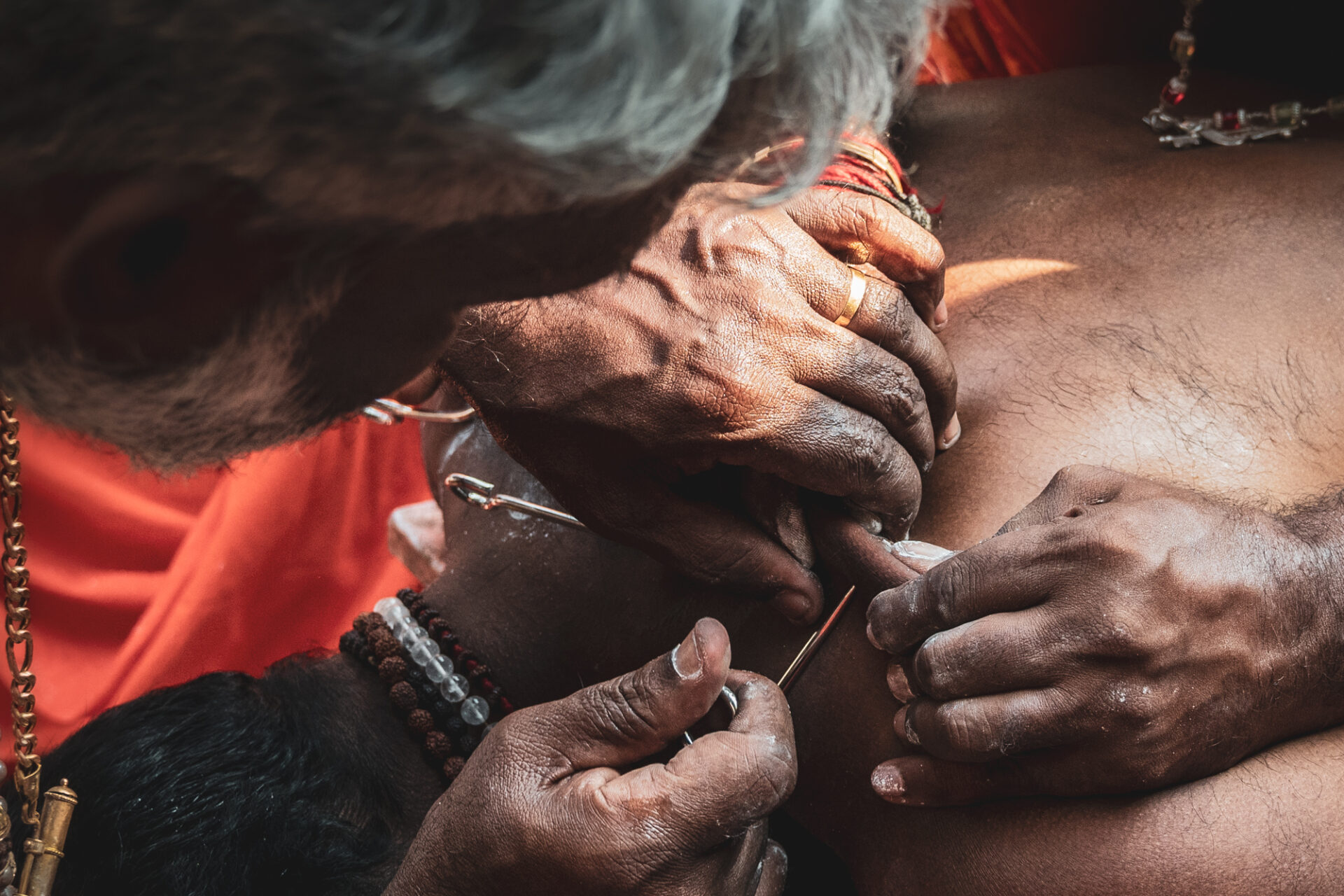
Curiously, there is no bleeding when the skewer is inserted into the skin.
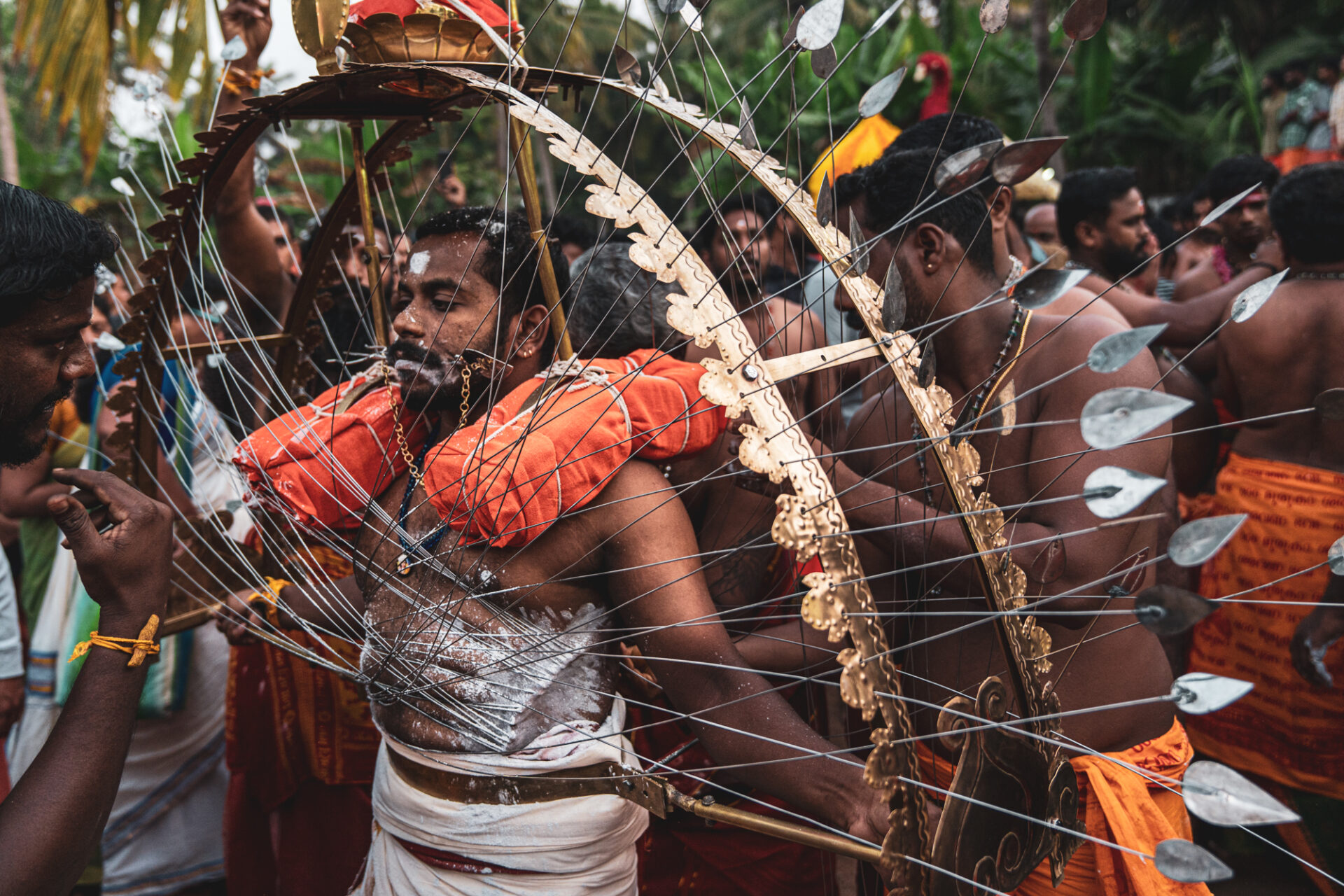
They said he would sprinkle white powder on the wounds to prevent infection from tetanus and other diseases.
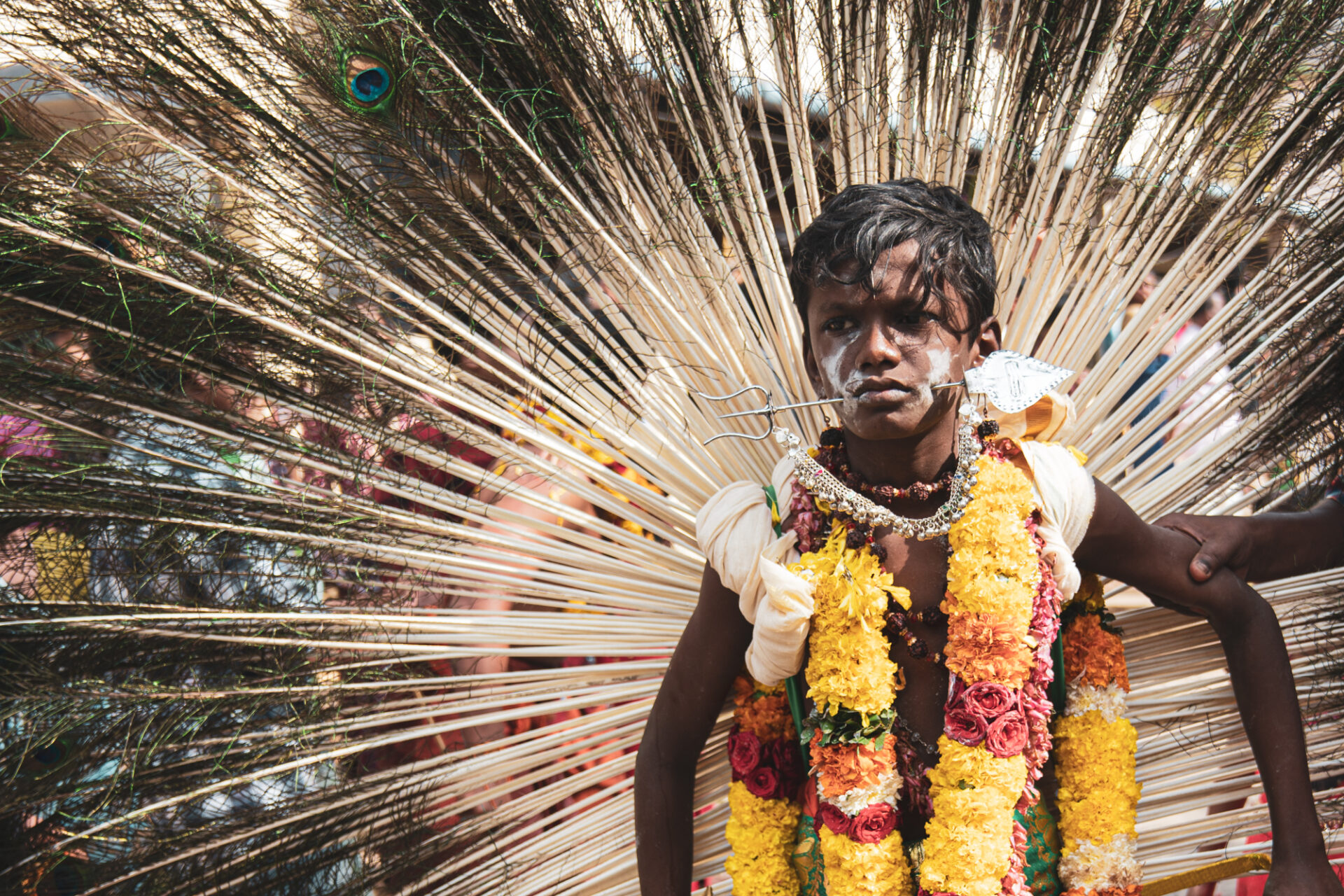
The peacock is the national bird of India and symbolizes the cyclical nature of time in Hindu cosmology.
It is often depicted alongside the god Krishna.
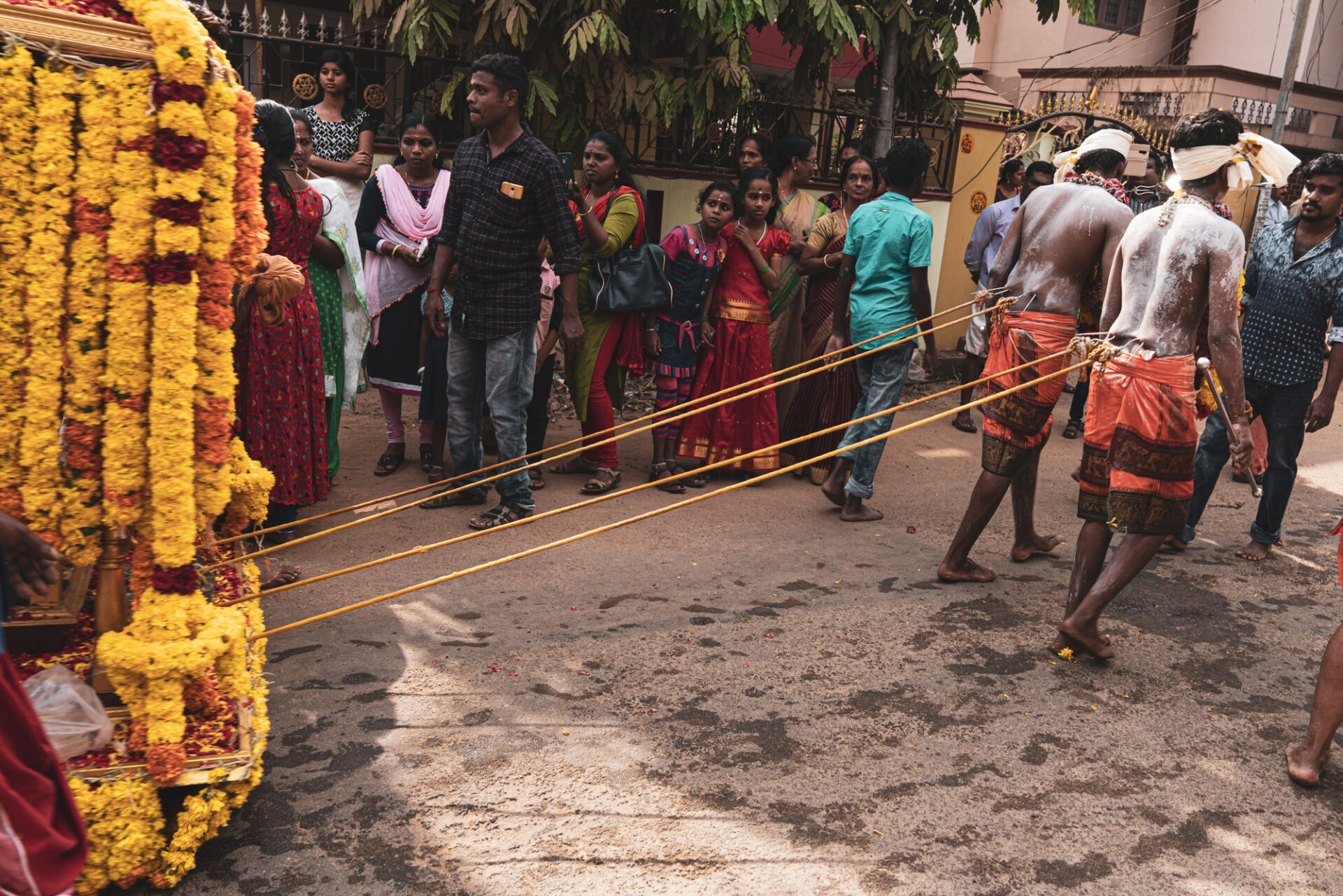
Pulling a portable shrine.
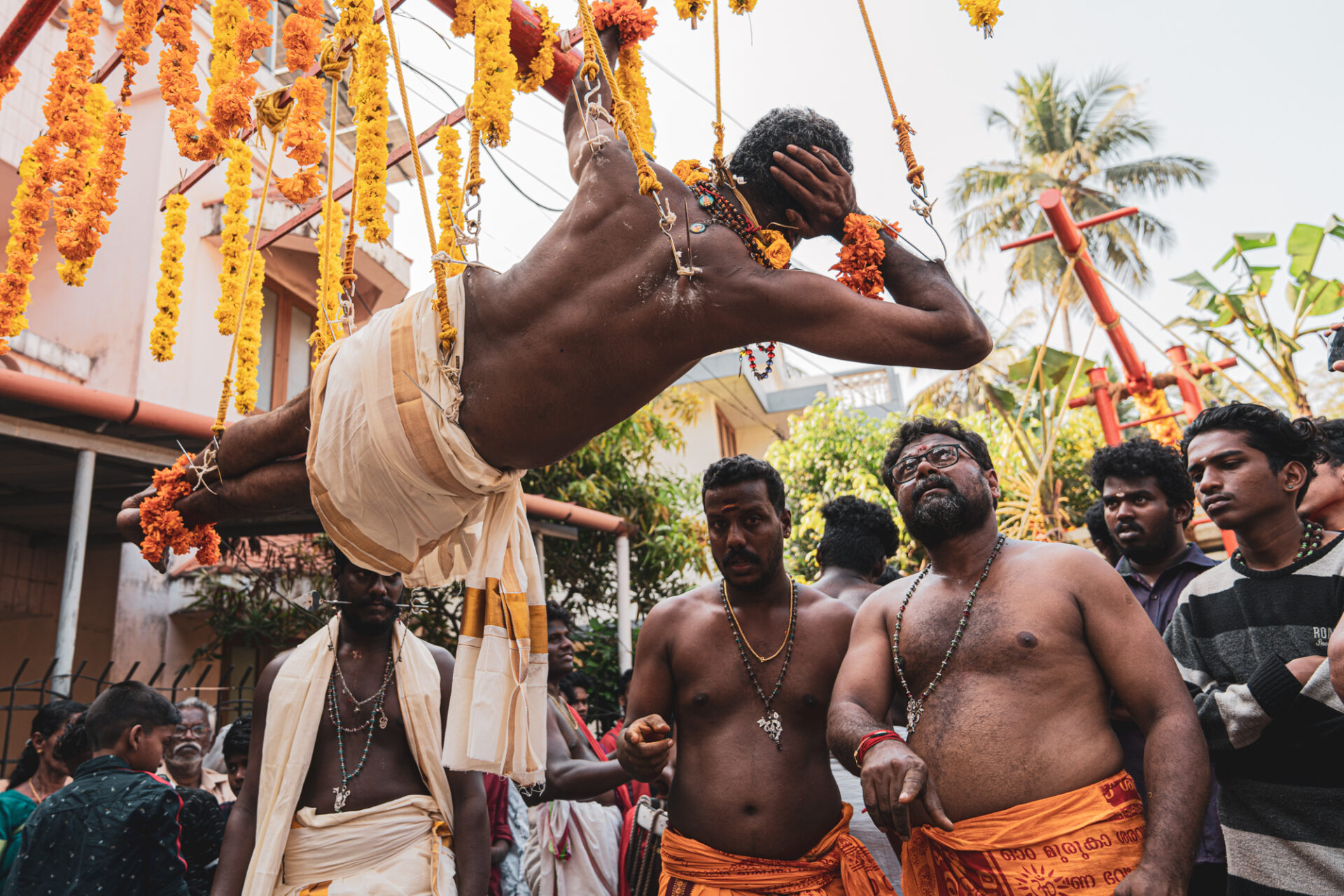
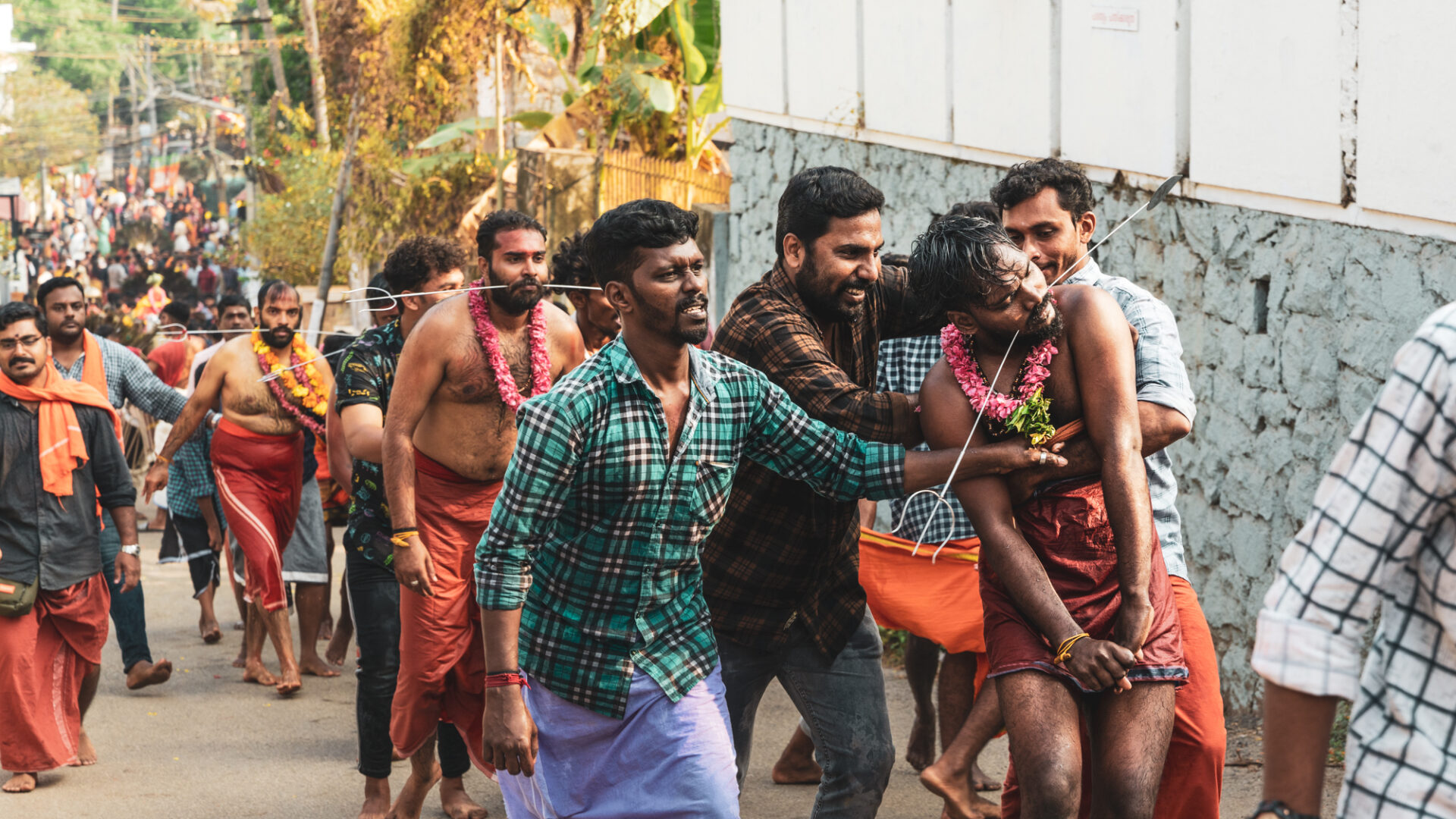
Practitioner of austerities in a trance, supported by their friends, parade through the city.
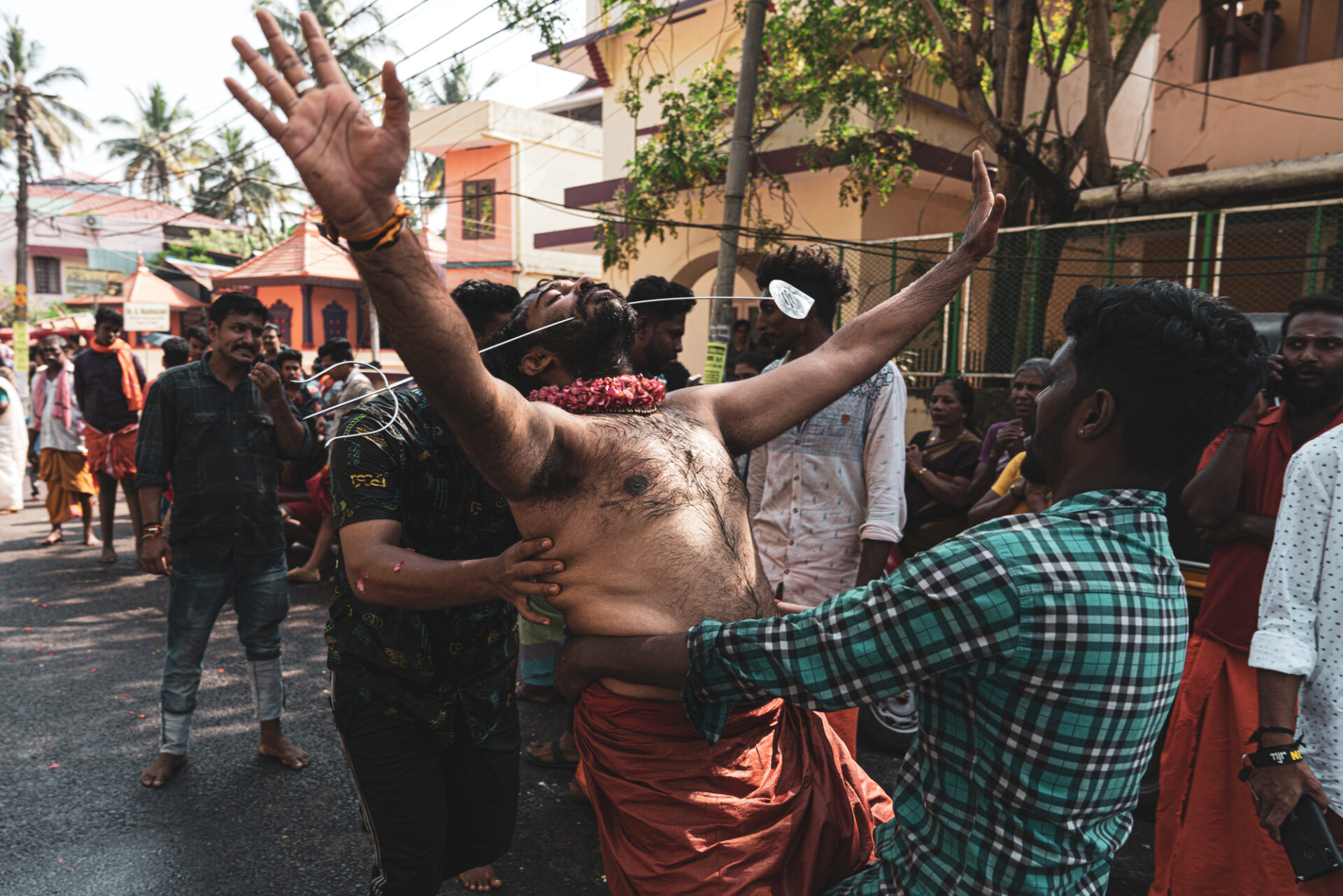
Not all followers participate in acts of self-mortification during the Hindu ritual of Thaipusam.
It is also common to observe individuals offering prayers or paying respects to those undergoing self-mortification.
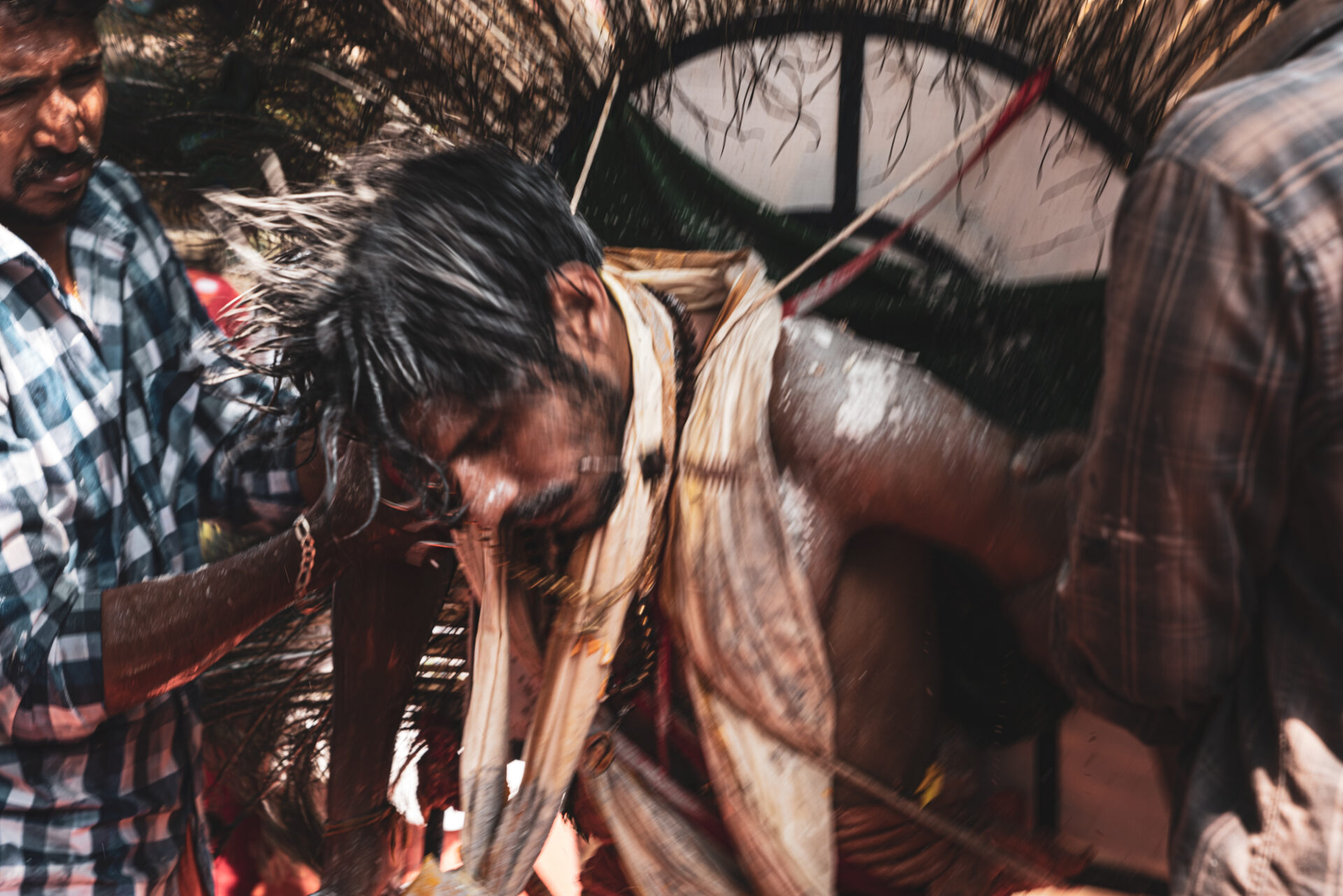
They purify their bodies for days in advance for this day.
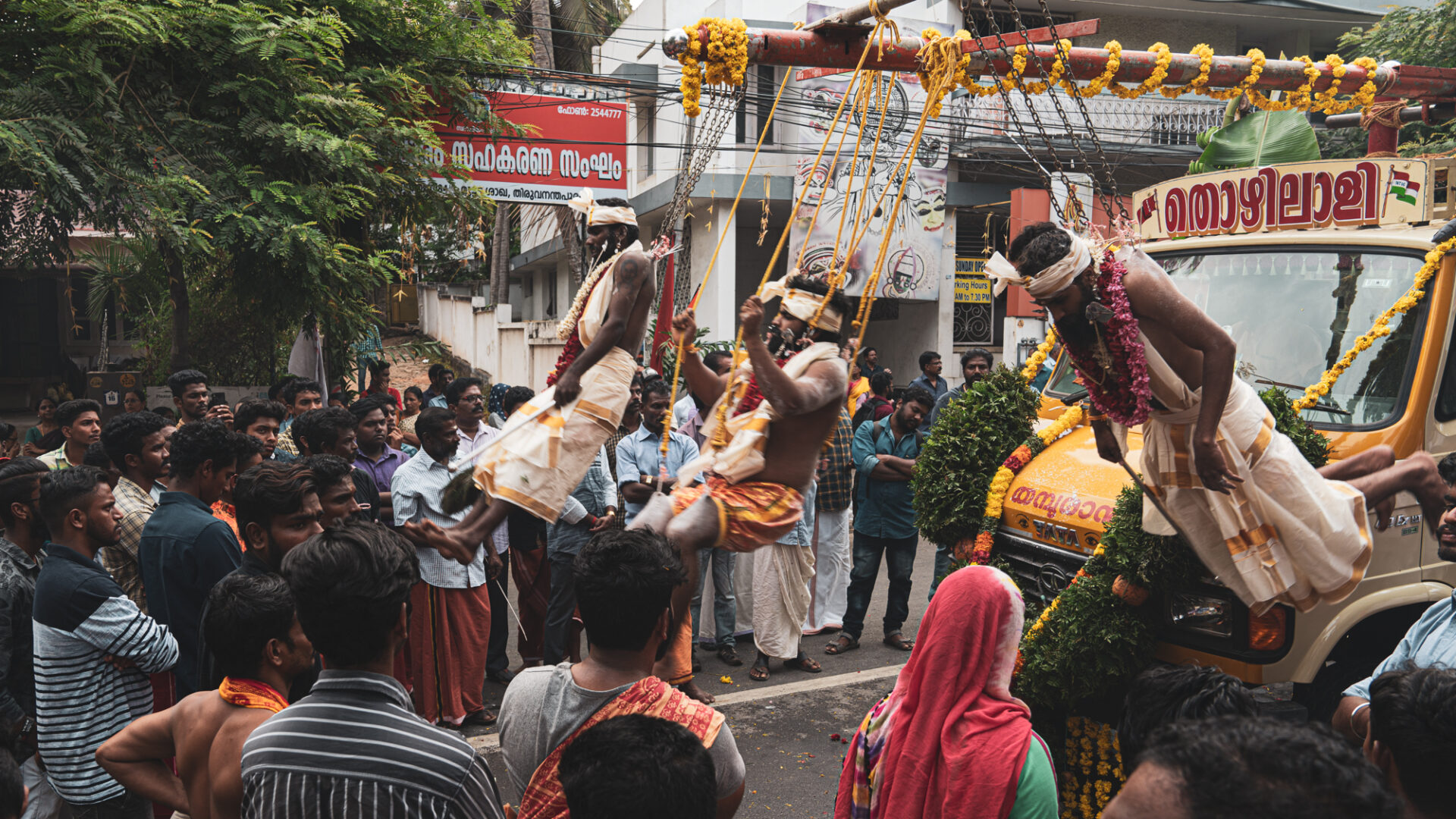
Swinging the body as if riding a swing.
Thaipusam, a festival in this small community, is a Hindu celebration widely held in southern India. Through this festival, I encountered different religions and beliefs, prompting deep reflection on human religiosity. The self-flagellating acts during Thaipusam are deeply connected to faith, providing an opportunity for me to contemplate its meaning.
This festival, held in various locations in southern India, incorporates different customs and traditions specific to each region, yet shares common religious elements. Thaipusam is a demonstration of devotion through participants inflicting harm upon their bodies, and through this, I gained a deeper understanding of different belief systems.
On the other hand, this festival has brought me face to face with unanswered religious questions. I still feel that my understanding of how self-flagellation is intertwined with faith and the underlying meaning is lacking. While Thaipusam is regarded as a sacred act, further learning and experience are necessary to gain insight into its meaning and purpose.
The new perspectives gained through this festival have heightened my religious curiosity. Despite lingering unanswered questions and complex emotions, I feel that I have taken a step towards understanding the diversity of religions, showing respect for different faiths and rituals.
